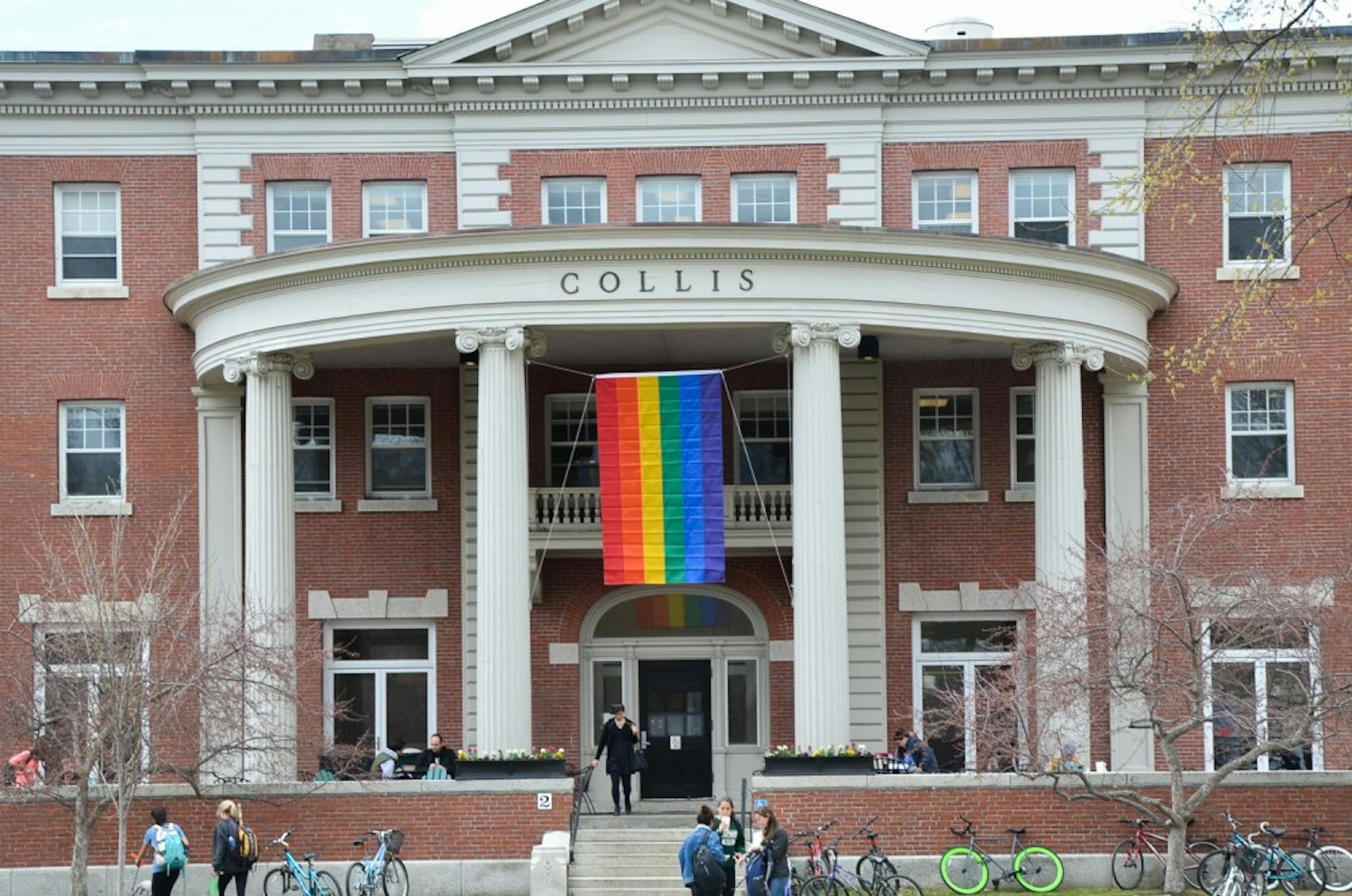Though it is unlikely that many students have upcoming nuptials on their minds, the recent Supreme Court decision legalizing same-sex marriage has social ramifications that will impact the student community here at the College.
Women’s and gender studies professor Michael Bronski described the decision as “groundbreaking.” Bronski reflected on his 40-plus years of political organizing in the LGBTQ+ community, noting that people his age at the beginning of their activism would have never imagined such progress.
“The ruling is saying something that no one thought was possible,” Bronski said. “Beyond getting married, it says that you have a constitutional right to choosing your partner.”
Government professor Sonu Bedi called the decision “magisterial,” and said that the ruling sends a strong signal that members of the LGBTQ+ community are equal to everyone else.
“I think that the result the justices reached is required by the Constitution,” he said.
In New Hampshire, same-sex marriage has been legal since 2010. While Bronski said that the Supreme Court decision may result in minimal policy changes, it could catalyze a shift in attitude that would result in positive changes for LGBTQ+ youth at the College and beyond.
Bronski said that socially, marriage is often viewed as a next step. Now that it is nationally available to same-sex couples, he said that it may change the way same-sex relationships are viewed.
“It can change the way parents, siblings, relatives and clergy view LGBTQ+ youth,” Bronski said. “Parents can rethink how their children can now go into the world in this social setting, where marriage is thought of as a good thing. The social ramifications are so much larger than just being able to get married, which may be fundamental in how parents think about the future for their gay children.”
Bedi also said that, although gay marriage has been legal in New Hampshire, the Supreme Court ruling affects the viability of marriage for those living in the state who may move to or visit other areas in which same-sex marriage was previously not recognized.
“You can basically now go anywhere and your marriage will be recognized in the United States, wherever you are,” he said.
For example, before the ruling, if a same-sex married couple visited Arkansas, which outlawed same-sex marriage until the Supreme Court’s recent decision, he said, the marriage’s recognition would be called into question.
Center for Gender and Student Engagement program coordinator Sebastian Muñoz-Medina also said that the ruling would likely have broader social effects. Muñoz-Medina said that the LGBTQ+ community could see same-sex legalization as an affirmation and empowerment of their identity and relationships.
Muñoz-Medina and Bronski said that despite the decision’s significance, there still remains much room for progress.
“Winning marriage is fabulous, but you have to think about the entirety of people’s lives,” Bronski said. “It unfortunately does not eliminate other oppressions people experience.”
The two also stated that progress does not exist in a vacuum, and that it is essential to look at the intersectionality of race, socioeconomic status and other aspects of identity to further LGBTQ+ rights.
“This a huge milestone, but it’s also just a stepping stone,” Muñoz-Medina said. “It’s possible now to get married, but you can still be fired, denied service or discriminated in housing if you identify as LGBTQ+. Whatever that might look like, it’s still legally acceptable.”
Similarly, Amara Ihionu ’17 said that while the ruling is an important landmark that deserves to be celebrated, she is wary of people thinking that the decision marks the end of all LGBTQ+ struggles.
“It doesn’t happen like that overnight,” she said. “There is still bigotry and so many other issues in the LGBTQ+ community other than marriage inequality.”
Bronski said he was also struck by the portrayal of the ruling in the media, which masked the diversity of the LGBTQ+ community and its members’ experiences.
“If you watched the news, you’d think the only people who are gay are young, attractive white people or older white people,” he said.
The limited media portrayal diverted attention away from the diversity of struggles faced by the LGBTQ+ community, he said. Bronski used the example of a black lesbian couple in Missouri, who could now get married but would still be unable to vote unless they had proper identification because of discriminatory laws in the state.
Muñoz-Medina said that because the right to marry has dominated the popular discussion of the queer liberation movement for so long, what comes next remains an open question. For a state like New Hampshire that has recognized the right to marry since 2010, identifying missing anti-discriminatory legislation could be a useful next step.
“It’s so hard to say what the needs are, because the community is so diverse in itself,” Muñoz-Medina said. “Non-discrimination is definitely a focus, though. Getting it acknowledged federally versus just having rights protected in limited towns or regions might be next.”
Within the College, Muñoz-Medina said there are many resources that foster empowerment, citing examples such as the ability to go by one’s preferred name and a vast healthcare system, issues that are relevant for transgender students in particular.
“I can’t speak for what the queer experience is like, because everyone faces their own struggles,” Muñoz-Medina said. “But at least at Dartmouth, these opportunities exist and people are listening, so you can reach out and make something happen here.”
Kate Hildreth and Sara McGahan contributed reporting.




